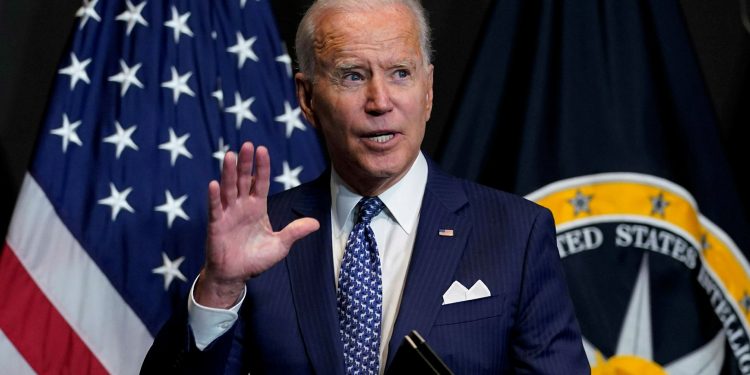Washington: President Joe Biden announced Tuesday that the US will ban all Russian oil imports, toughening the toll on Russia’s economy in retaliation for its invasion of Ukraine. However, Joe Biden acknowledged this new move will be costly to Americans, particularly at the gas pump.
The action follows pleas by Ukrainian President Volodymyr Zelenskyy to US and Western officials to cut off the imports, which had been a glaring omission in the massive sanctions put in place on Russia over the invasion. Energy exports have kept a steady stream of cash flowing to Russia despite otherwise severe restrictions on its financial sector.
“We will not be part of subsidising Putin’s war,” Biden declared. He called the new action a ‘powerful blow’ against Russia’s ability to fund the ongoing offensive. He warned that Americans will see rising prices, and said, “Defending freedom is going to cost.”
Biden said the US was acting in close consultation with European allies, who are more dependent on Russian energy supplies. The European Union this week will commit to phasing out its reliance on Russia for energy needs as soon as possible, but filling the void without crippling EU economies will likely take some time
Unlike the US, which is a major oil and gas producer, Europe relies on imports for 90 per cent of its gas and 97 per cent of its oil products. Russia supplies 40 per cent of Europe’s gas and a quarter of its oil. The US does not import Russian natural gas.
The issue of oil sanctions has created a conflict for the president between political interests at home and efforts to impose costs on Russia. Though Russian oil makes up only a small part of US imports, Biden has said he was reluctant to ban it, cutting into supplies here and pushing gasoline prices higher.
Inflation is at a 40-year peak, fuelled in large part by gas prices, and that could hurt Biden heading into the November midterm elections. He said two weeks ago that he wanted ‘to limit the pain the American people are feeling at the gas pump’.
Gas prices have been rising for weeks due to the conflict and in anticipation of potential sanctions on the Russian energy sector. The average price for a gallon of gasoline in the U.S. hit a record $4.17 Tuesday, rising by 10 cents in one day, and up 55 cents since last week, according to auto club AAA.
Biden said it was understandable that prices were rising, but cautioned the US energy industry against ‘excessive price increases’ and exploiting consumers.
Even before the US ban many Western energy companies including ExxonMobil and BP moved to cut ties with the Russia and limit imports. Shell, which purchased a shipment of Russian oil this weekend, apologised for the move on Tuesday amid international criticism and pledged to halt further purchases of Russian energy supplies. Preliminary data from the US Energy Department shows imports of Russian crude dropped to zero in the last week in February.
In 2021, the US imported roughly 245 million barrels of crude oil and petroleum products from Russia – a one-year increase of 24 per cent according to the US Energy Information Administration.
“It’s an important step to show Russia that energy is on the table,” said Max Bergmann, a former State Department official who is now a senior fellow at the Democratic-leaning Centre for American Progress.
Bergmann said it wasn’t surprising that the US was able to take this step before European nations, which are more dependent on Russian energy. “All of this is being done in coordination, even if the steps are not symmetrical,” he said. “We are talking to them constantly.”






































